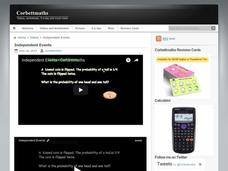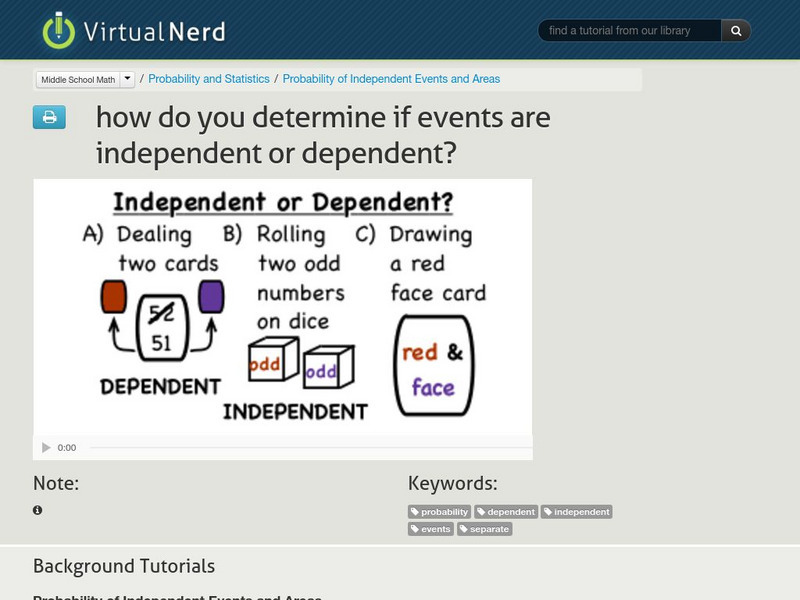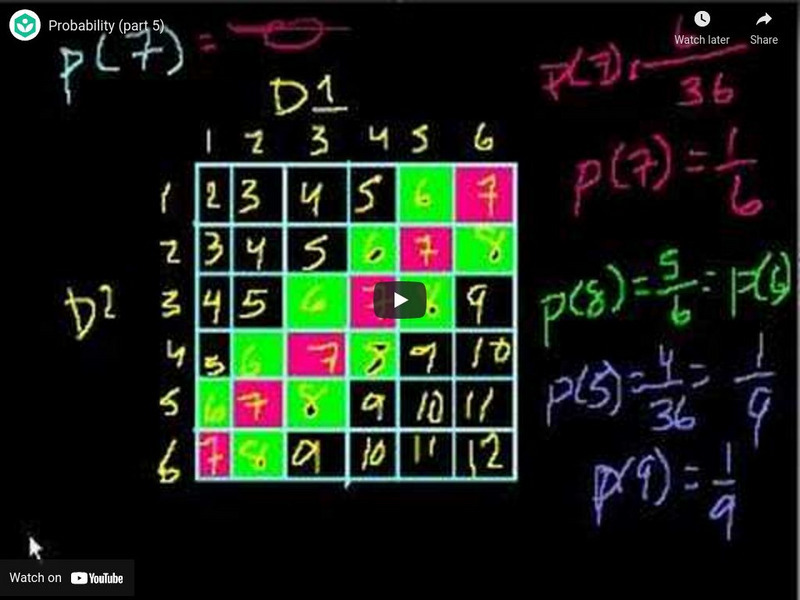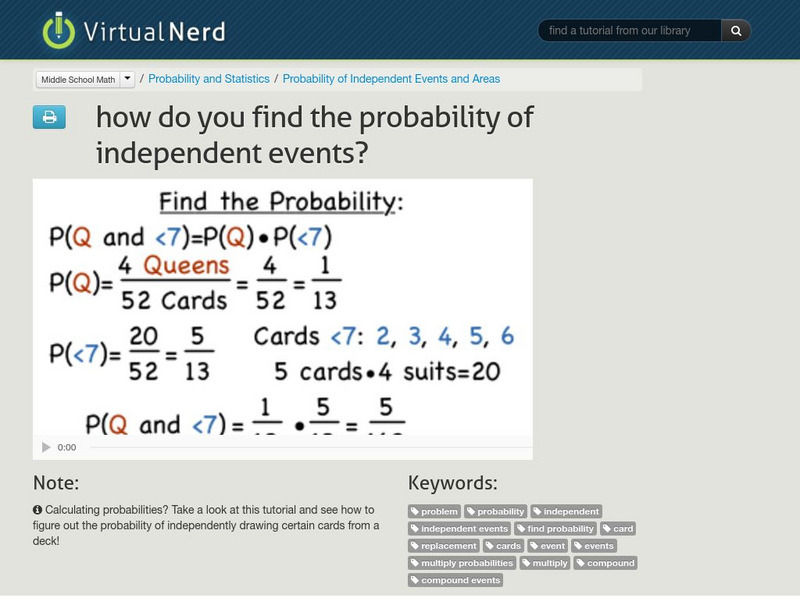Curated Video
The Chase
Will the lion catch the zebra? Find the time it has to escape by solving the animals' equations simultaneously. Maths - Algebra A Twig Curriculum Film. Delivering key learning points. Get straight to the facts in just three minutes –...
Curated Video
Can Monkeys Write Shakespeare?
The Infinite Monkey Theorem states that a monkey hitting a keyboard an infinite number of times will, at some point, end up typing the works of Shakespeare. Find out how to calculate the probability of independent events, and how many...
Curated Video
The Birthday Paradox
How many people do you need to have in one room to be sure that two will share the same birthday? The answer is not as high as you might think... Maths - Algebra A Twig Math Film. Reinforce and extend the learning required by the...
Curated Video
Probability: Exhaustive, Mutually Exclusive, and Independent Events
The video is a lecture about probability and how to define and calculate probabilities for different types of events. The presenter defines and explains exhaustive, mutually exclusive, and independent events, and demonstrates with...
Curated Video
GCSE Secondary Maths Age 13-17 - Probability & Statistics: Independent Events - Explained
SchoolOnline's Secondary Maths videos are brilliant, bite-size tutorial videos delivered by examiners. Ideal for ages 13-17, they cover every key topic and sub topic covered in GCSE Maths in clear and easy to follow steps. This video...
Curated Video
Probability: Events, Outcomes, and Probability of Single and Compound Events
This video is a comprehensive guide to probability, covering events and outcomes, experimental and theoretical probability, compound probability, and sample spaces. The teacher explains each concept clearly and provides examples and...
TMW Media
Conditional Probability
This program covers the important topic conditional probability in Probability and Statistics. We begin by discussing what conditional probability is and why it is important. Next, we solve several problems that involve the essential...
KnowMo
Calculating Probability: Equally Likely Possibilities, Mutually Exclusive and Independent Events
This video teaches the viewer how to calculate probability in various situations. The lecturer explains the formula used to calculate the probability of a specific outcome or set of outcomes, and gives examples using a spinner, cards,...
Curated Video
Calculating the Probability of Independent Events
In this video, examples of rolling dice, picking balls from boxes, and wearing sneakers are used to illustrate the probability of independent events. The teacher also emphasizes the importance of understanding whether events are...
Curated Video
Determining Independent Events
In this lesson, students will learn how to determine whether two events are independent or not. They will understand that independent events are not influenced by each other and that the probability remains the same regardless of...
TED-Ed
The Last Banana: A Thought Experiment in Probability
Your learners will be surprised by the thought-provoking, counterintuitive puzzle presented in this short video that models a fun, fictional situation in which a game is played with two number cubes to decide which of two people wins a...
Corbett Maths
Probability: Independent Events
Equip learners to work independently on probability in no time. A short video describes methods for determining the probability of independent events. It includes examples where the order of events is important and must be taken into...
Anywhere Math
Independent and Dependent Events
Some learners are independent, while others are dependent on lessons like these! An instructional video discusses the difference between independent and dependent events when calculating a probability. The lesson begins with...
TED-Ed
The Coin Flip Conundrum
Mathematical paradoxes always intrigue learners. An engaging lesson explores the probability of flipping a heads/heads or tails/heads combination. A video introduces the paradox and explains the mathematics.
Virtual Nerd
Virtual Nerd: How Do You Find the Probability of Independent Events?
Using a card trick as an example, this tutorial explains how to find the probability of independent events. [5:53]
Virtual Nerd
Virtual Nerd: How Do You Determine if Events Are Independent or Dependent?
Watch three examples and figure out if they are independent or dependent events. This tutorial walks you through each example and explains why it is an independent or dependent event. [4:19]
Khan Academy
Khan Academy: Probability: Probability (Part 5)
Video lesson finding the probability specific outcomes from rolling a pair of dice by looking at the sample space. [10:07]
Khan Academy
Khan Academy: Probability: Probability (Part 4)
Video lesson solving for compound probability with free-throw shooting percentages by finding the probability of the complementary event.
Virtual Nerd
Virtual Nerd: How Do You Find the Probability of Independent Events?
This video describes the process for finding the overall probability of drawing certain cards from a deck when the two events are independent, i.e., have no impact, on each other. In the example presented, one card is a queen and the...
Khan Academy
Khan Academy: Compound Probability of Independent Events
Looks at how to use multiplication to calculate the overall probability of two independent events happening. Uses the example of two tosses of a coin. [6:00]
Khan Academy
Khan Academy: Independent Events Example: Test Taking
Looks at what the probability would be of someone correctly guessing the answers for two multiple-choice questions on a test. [4:44]
Khan Academy
Khan Academy: Probability: Events and Outcomes 3
Video demonstrating how to find the probability of exactly two heads out of three flips by finding the sample space. [2:09]
Khan Academy
Khan Academy: Probability: Coin Flipping Example
Video finding the probability of exactly two heads in three coin flips by looking at the sample space. [2:13]
Khan Academy
Khan Academy: Probability: Getting Exactly Two Heads (Combinatorics)
Video lesson solving for the probability of certain outcomes in four flips of a coin by finding the sample spaces and counting combinations. Includes link to additional practice problems. [10:00]














